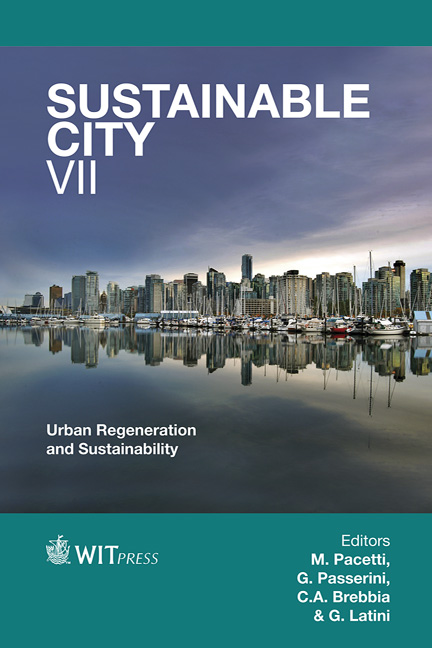Land Use Change And Environmental Sustainability: The Case Of Lagos Metropolis
Price
Free (open access)
Transaction
Volume
155
Pages
11
Page Range
157 - 167
Published
2012
Size
1,510 kb
Paper DOI
10.2495/SC120141
Copyright
WIT Press
Author(s)
I. I. C. Nwokoro & S. O. Dekolo
Abstract
Land use is a most important factor in the distribution and functioning of ecosystems and benefits derived by man. The Malthusian geometric population growth and continuous demands for food, shelter, clothing, energy and even pleasure has led to depletion of natural resources. Land is limited in supply and its finite nature makes it a scarce resource that cannot meet its demand. The use of land is a reflection of our decisions, which will determine how sustainable our future will be. Detecting land use changes requires timely and accurate information which can be assured by using remotely sensed data and GIS. Analyzing the correlation between land use changes and their impacts is essential for spatial planning at various spatial levels (global, national, regional and local levels). A cursory look at the sporadic growth of the Lagos metropolis reveals an unquestionable exert of pressure on the existing rural land, agricultural and forests resources. This paper examines Spatio-temporal trends in land use and land cover changes in the Lagos Metropolitan region, especially the loss of forest resources and agricultural land to urban development. Landsat images were used to produce land use classification maps for a period spanning sixteen years (1990 and 2006). The study was limited to these two dates due to cost and difficulty of acquiring satellite imageries. The dynamics of land use change and its impact were discussed as major findings. The paper submits that effective spatial planning could minimize the impacts of land use changes that threaten biodiversity and ecosystems though timely and proper monitoring using remote
Keywords
land use change, sustainable development, remote sensing, geographic information systems, urban growth





